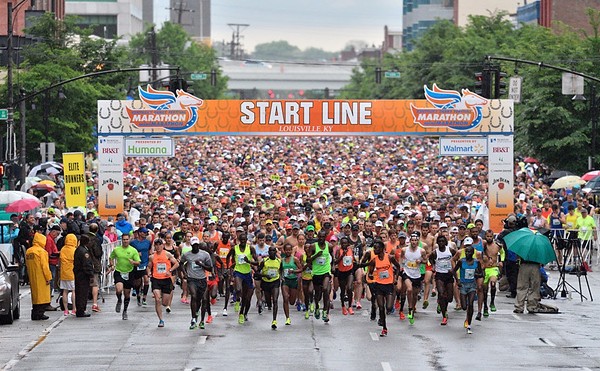The Louisville Independent Business Alliance is just one of many organizations across the nation that bands together local, independent businesses. But the group’s motto — “Keep Louisville Weird” — is as telling as it is distinctive.
While other independent business associations often urge consumers to buy local in order to stimulate the local economy, LIBA takes it one step further by urging Louisvillians to keep their beloved city from becoming overrun by large corporations in order to preserve its local flavor.
“I would like where I live to not become as homogenized as [other cities are],” says Todd Brashear, owner and founder of Wild and Woolly Video. “To me, if you go to different cities and all they have is an Applebee’s and a McDonald’s and a Blockbuster and a Starbucks … why bother going anywhere else, because then everything just becomes the same, every town becomes the same. I like that Bardstown Road is not the same as anywhere else, and I would hope that we can maintain that to a certain degree.”
Although major corporations are attempting to recreate the success of buy-local campaigns through “localwashing” — a term for the corporate marketing and advertising campaigns meant to transform the mall into your friendly neighborhood swap meet — independent business owners are able to interact with customers in a way that chain stores will never be able to imitate. This is another reason why many people choose to patronize local, independent businesses.
“I think there’s an emphasis to support locally owned businesses because people get to know the owners and feel comfortable that when they walk in the door, they know the person that owns the business,” says Larry Horton, founder and owner of Horton’s Hardware.
The multiplier effect is a major reason why localwashing can never sincerely upend buy-local campaigns; according to LIBA’s website, for every $100 spent at a chain store, only $13 stays in the community, whereas $45 remains if it’s spent at a local business.
“My theory is that when things are tough people kind of think a little bit more about how they spend their money and what things are important to them, so maybe they like the idea of more of their money staying close to home,” Brashear says.
There are several reasons people choose to patronize chains rather than buying local, even if they support local businesses in theory. One reason, especially in this downtrodden economy, is because of chains’ seemingly low prices. Summer Auerbach, vice president of operations at natural food market Rainbow Blossom and director of marketing and membership for LIBA, urges consumers to “do some real price comparison” between local and non-local businesses.
“It’s also about price perception, so [chains] have really low prices on some of the staple items that people buy all the time, but then their prices actually might be higher than suggested retail [on others],” she says.
Auerbach also believes people sometimes choose to shop at such businesses because of marketing campaigns that can alter consumers’ perceptions, as well as the idea that these chain stores are “kind of one-stop shopping.”
“There’s a reason why these large companies are putting so much money into marketing, because that makes people think of them when they need to run out and buy something,” she says.
Despite these advertising mischaracterizations — and the fact that in some cases, chain stores might genuinely offer better deals — there are often products and services that independent businesses can offer over the majors. Rainbow Blossom offers a variety of brands that can’t be found in the chain grocery stores, and Horton’s Hardware carries the Porter Paint brand, while Lowe’s and Home Depot do not. Wild and Woolly offers videos that can’t be found in chain rental stores or even on Netflix, an advantage Brashear says helps his business succeed over others like it.
“If a video store is totally just trying to do the exact same thing as Blockbuster or Redbox, then they probably are not doing well,” he says. “But since we have such a big back catalog and are not trying to do exactly what they’re doing, we’ve been OK.”
Though localwashing is one way in which the concept of buying local has been taken out of context, Brashear believes that the promotion of the concept may in fact benefit local businesses if enacted in its pure form.
“Any time any underground movement is co-opted by the mainstream it might dilute it somewhat, but if people really bought what was truly local, I don’t really see how that would hurt,” he says.





